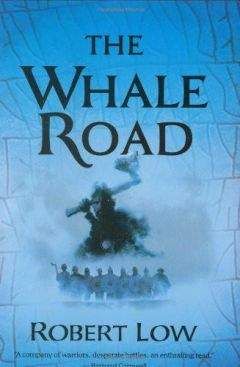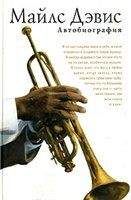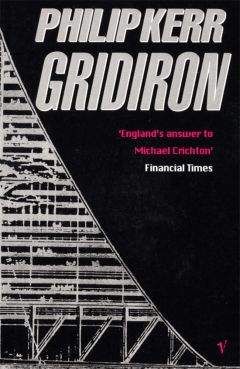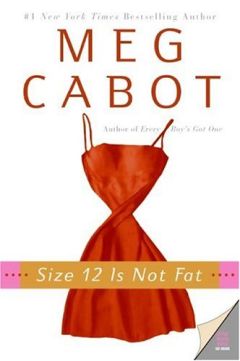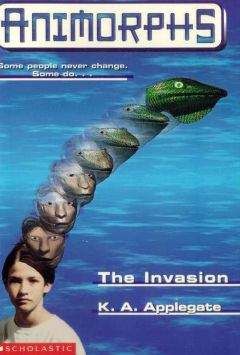Greg Iles - The Devils Punchbowl
Christ, she says in disgust. I'm hanging up.
The phone goes dead.
I walk to the open door of my fathers office. Dad is bending over his desk to sign a prescription, while Jewel studies a photograph of our family when I was eleven and my sister seventeen.
Yall ever see Jenny anymore? she asks.
Not very often, Dad confesses.
She looks just like Mrs. Peggy, almost exactly.
I'm sorry, I've got to run, I tell them.
Where are you going? Dad asks.
I have to find Caitlin. Thanks for everything, Jewel. No more warnings from me.
The coroner smiles. Boy, I didn't make it this far not knowing how to take care of myself. Get out of here.
With a quick wave, I turn and run for my car.
CHAPTER
23
Tim Jessups father is the last man I expected to hear from today, but four blocks from Caitlins house, I answered my cell phone and heard the old surgeons voice in my ear. Jack Jessup is the opposite of my father: arrogant, greedy, brusque with patients. Golf, money, and the respect of society are his primary obsessions, at least the ones I know about. Seen through his fathers eyes, Tim must have seemed a complete failure from the time he entered high school.
Dr. Jessup gave me no specifics, but asked if I could stop by the Catholic rectory in the next half hour. I assumed that he intended to ask me to read or say something at Tims wake. I wanted to see Caitlin as soon as possibleshe had agreed via text message to meet me at her housebut since the cathedral and rectory are only a few blocks away from our houses, I agreed to meet the surgeon.
Its close to dark when I pull up to the imposing mass of St. Marys Minor Basilica, a monument to the Irish immigrants who came to Natchez in the nineteenth century. The Irish dominated the Catholic faith here, leavened by a few Italian families who escaped indentured servitude upriver in Louisiana. Of course, Natchez has black Catholics as well, and they worship at the historic Holy Family Church on St. Catherine Street, but their journey, like so many in Natchez, was a parallel one. The dual cultures, shadows of each
other, stretch out toward infinity, a single breath apart, but never quite meeting.
The rectory is a modest building, built of the same brick as the cathedral. A long, gray Mercedes is parked in front of it, and behind this an older Lincoln Continental. As I approach the door, a woman bursts through and rushes past me. She looks familiar, but all I really register is a graying bouffant and pancake makeup concealing a face twisted into a grimace of rage and anguish. She disappears into the Lincoln, then races down the street with a squeal of rubber.
Whats going on here?
I wonder.
Father Mullen is a new priest, and young. I've only met him on a couple of occasions, at civic functions. A well-educated Midwesterner, he seems somewhat bemused by the Southernness of his new flock. I wonder how he sees Jack Jessup, a clotheshorse who used to charge $1,000 to remove a mole my father would have cut off for $75.
I find Dr. Jessup and Father Mullen in the priests office, the surgeons expensive chalk-stripe suit a marked contrast to Mullens black robe. I can tell by Jessups posture that hes disturbed about something. Hes leaning over the priests desk like a naval officer at the rail of a ship about to go into battle.
Judiciously clearing my throat, I say, Excuse me?
The surgeon turns sharply, but his face softens when he recognizes me. He motions me forward, and I shake his hand.
Behind him, Father Mullen looks as though he would rather be mortifying his flesh in a monastery than dealing with Dr. Jessup in his present state. The surgeon has intimidated more formidable men than priests.
What can I do for you, Dr. Jessup? I ask.
The surgeons mouth works behind his closed lips for a few moments, as though hes being forced to chew and swallow a day-old lemon wedge. When Dr. Jessup finally speaks, I realize his voice is choked with indignation.
Did you see who just left?
She looked familiar, but she passed me so fast, I didn't recognize her.
Charlotte McQueen.
I blink in surprise, but it takes less time than a blink for me to
decode the subtext of this situation. Charlotte McQueen is the mother of the boy who died when Tim ran his car off the road in college during his beer run to the county line. In fact, shes the one who pushed the DA into making Tim do jail time. Mrs. McQueen is an influential member of the Catholic church, and I doubt she came to express her condolences.
I see, I temporize. Well, how exactly can I help, Doctor?
Dr. Jessup jerks his head toward Father Mullen. I'll let
him
explain it to you.
The priest tries a conciliatory smile as he stands and walks around his desk, taking care to make a wide arc around Dr. Jessup. I can only imagine what must have transpired before I entered the rectory. Mr. Mayor, he begins in a soft voice, but then he stops and looks closely at me. Are you all right, Mr. Cage?
What do you mean?
Your eyes are very red.
I haven't gotten much sleep this weekend. Please go on.
I'm not sure we should even be having this conversation, but Dr. Jessup feels that your input might help shed some light on the situation.
What exactly is the situation?
Well, as you may know, Timothy Jessup was
Just tell him what the woman said, Dr. Jessup snaps. Tell him what she wants.
Father Mullen gives the surgeon a pained look. Dr. Jessup, I really don't think you need worry about Mrs. McQueens request. What she asked
Demanded.
Yes yes, I suppose she did. Nevertheless, its really very rare nowadays. Only in the most extreme cases does
Stop all the mushmouth! Just tell him.
Father Mullen turns to me. Well, as you probably know, Mrs. McQueens son Patrick died twenty-seven years ago on a highway near Oxford, Mississippi.
Yes, I know. Tim Jessup served time for manslaughter as a result. How does that bear on the present?
The vindictive old bitch doesn't want Tim to have a Church funeral, Dr. Jessup says in a choked voice.
Blood rises into my cheeks. Is that true?
Father Mullen diplomatically retreats a step. Not exactly. But in broad terms, yes. I don't believe Mrs. McQueen has ever gotten over the death of her son.
Of course not. No one does. But I fail to see how that would have any bearing on Tims funeral.
Well, Father Mullen says in the tone of a man being forced to point out the most inconvenient of truths, according to canon law, certain persons may be prohibited from having Catholic funerals. If the person is known to be an apostate or a heretic, or is such a publicly manifest sinner that having a Church funeral would cause a scandal among the congregation, the mass may beand occasionally iswithheld.
Dr. Jessup is shaking his head in disgust. I cant believe my ears. I've been coming here for thirty-seven years, and
Just a moment, Dr. Jessup, I say. Father, are you seriously considering Mrs. McQueens request?
Well, not in the way you might think. But given the situation, I don't feel I can simply reject it out of hand. The problem is that the congregation has become aware that a large quantity of drugs was found in Tims home on the night he died.
The night he was
murdered,
Dr. Jessup corrects. Isnt that right, Penn? Wasnt my son murdered?
He was.
Father Mullen nods awkwardly, as though this information hardly advances Tims cause. It seems that some embarrassing pictures have surfaced as wellpictures of a young lady not Mr. Jessups wife. They were also found in his home.
Dr. Jessup snorts. You want to start going through the closets and computers and cell phones of everyone in this congregation and see how many pictures like that you find?
Father Mullen blanches at the prospect. From an ecclesiastical point of view, the issues are several, and I suspect Mrs. McQueen researched them thoroughly before she came to me. Canons 1184 and 1185, to be precise. First, Tim hadn't been a practicing Catholic for many years. Second, he never had his child baptized into the faith nor showed any intent to do so. Third, hes known to have made statements to members of the congregation that he stopped believing
in God decades ago. With all respect, Dr. Jessup, Tim appears to have led a life of dissolution from the time of the drinking incident in which Patrick McQueen died up to the night of his own death, when police say he was selling drugs for a living. But most important, if Tim was indeed murdered, its unlikely he got a chance to repent these actions. Any or all of these issues could technically make Tim ineligible to receive the liturgy at his funeral.
Behind all the Churchspeak, I sense a man being tested in a way he never foresaw until tonight. What do
you
think, Father?
The padre thinks its time to punt, Dr. Jessup says bitterly. He wants to call the bishop.
Dr. Jessup, Father Mullen says in the soothing voice he must use at hospital bedsides, almost no one is denied a funeral, or at least a Catholic burial, nowadays. With our modern understanding of psychology, the Church frequently gives even those who take their own lives a mass and burial. I think that in this case, its simply a matter of showing Mrs. McQueen that I've taken her request seriously by passing it on to the bishop, who I am sure will make the appropriate decision.
Translation, says Dr. Jessup, they don't want to upset any big contributors. Or the women who keep the Church going. I guess I didn't put enough of the Almighty Dollar in the plate over the years.
Doctor, the priest says with an edge of indignation, I don't think thats fair.
I thought you asked me here to talk about Tims wake, I say, still not quite believing the situation.
Dr. Jessup brings a quivering fist to his mouth, and I realize I'm seeing something I've never witnessed before. Jack Jessup, a surgeon who, for as long as I can remember, appeared to be as stony and remote as a Victorian banker, is crying.
Father Mullen starts toward him as though to commiserate, but I warn the priest off with a glance. When a man like Jack Jessup breaks down, hes capable of anything.
Mr. Mayor, Father Mullen says softly, Dr. Jessup felt that before I called the bishop, you might be able to give me some details unknown to the publicthings that might mitigate the present appearance of things.
Despite my desire to help, I'm hesitant to reveal anything about
what Tim was doing. Its not that I don't trust the priest. My fear is that Dr. Jessup, in his desire to amend peoples opinions of Tim, might reveal more than he should. In truth I never liked the surgeon, but hes suffering terribly now, and if I can ameliorate that, I should. The risk of Tim not getting a Catholic funeral must be remote, but one never knows what bureaucrats will do to keep from offending those who subsidize their existence.
Gentlemen, I say reluctantly, I want both of you to give me your word that what I'm about to say doesn't go beyond these four walls.
Dr. Jessups eyes narrow. I'll never repeat anything you say here. As God is my witness.
Father Mullen frowns at the doctor, but its hard to chide a man who has just lost his son. You have my word, of course, says the priest.
I want the seal of the confessional.
Mullen looks offended. I'm not sure what you mean by that. Youre not Catholic, are you?
You know exactly what I mean, Father. I'm sorry to insist, but I've known priests and pastors who betrayed confidences, both in private conversation and in court.
Father Mullen shakes his head with a weary sigh. The seal of the confessional. What we say here goes no further.
Dr. Jessup is watching me like the parents of defendants I prosecuted for rape or murder watched the faces of their sons accusers; hes waiting for some hint that his child wasn't the terrible man people believe he wassome scrap of hope to cling to as time wears him down and leaves nothing but memory.
Father Mullen, I say softly, I'm ashamed to admit this, but I was Tims childhood friend, yet for the past few years I shared the low opinion people have of him. If were all honest here, I think even Dr. Jessup shared that opinion.
A strangled croak comes from my right, but I cannot bear to look.
In the next few days, people are going to say a lot of things about Tim. The newspaper may say he was using drugs the night he died. The police or the district attorney might even say Tim was planning to commit terrible crimes. I'm telling you now that those charges will be lies.
Dr. Jessups shoes creak as he steps forward and leans closer. What do you mean? Tell us.
I keep my eyes on those of the priest, which are blue and clear and bright with skepticism. Tim Jessup was a hero, I tell him quietly. I don't say that lightly. Tim died trying to save innocent people from suffering, and to protect this town from evil. That may sound archaic, Father, but I've dealt with evil firsthand. I know what I'm talking about. Tim suffered terrible torment before he died. The tragedy is that his death was unnecessary. Had the rest of us been doing the work we pay lip service to doing, Tim would still be with us. I know Mrs. McQueen has suffered over her son, but Tim paid for that a long time ago. What matters most is this: Even if the truth of what Tim was trying to do never comes out, every citizen of this town is in his debt. Of that you can be sure.
Dr. Jessup clutches my upper arm like a drowning man clutches a life preserver.
Father Mullens eyes are wide, his mouth half open. Well I think I expected a plea for the sake of the mans wife. Can you give me any details?
I'm afraid not. There are lives at stake.
The surgeons hand is shivering on my arm. Please, Penn. Anything.
I shake my head. Father, Jacqueline Kennedy once said that the Catholic Church is at its best when dealing with death. To me, this is one of those opportunities to live up to the promise of your creed. I personally don't know what Tim believed about God, but I do know he believed
in
God. He made religious references to me the night before he died, and I know he believed he was doing Gods work when he was killed. Now, you can call the bishop if you like. But I think its best if Dr. Jessup and I just leave you alone with your conscience.
Before the priest can respond, I turn and pull the old surgeon with me to the door. Dr. Jessup is wheezing like an asthmatic, but this sound isnt respiratory distress; its the throttled crying of a man who sealed himself off from emotion for most of his life and now finds himself unable to contain the hurt and stunted love within him.
